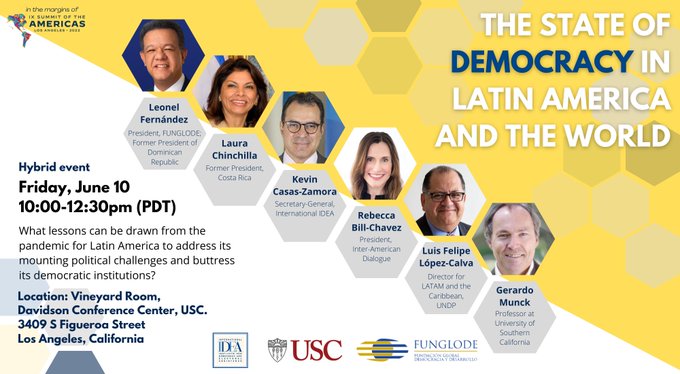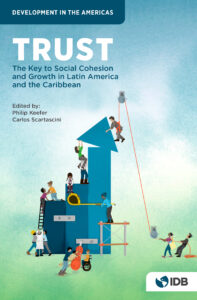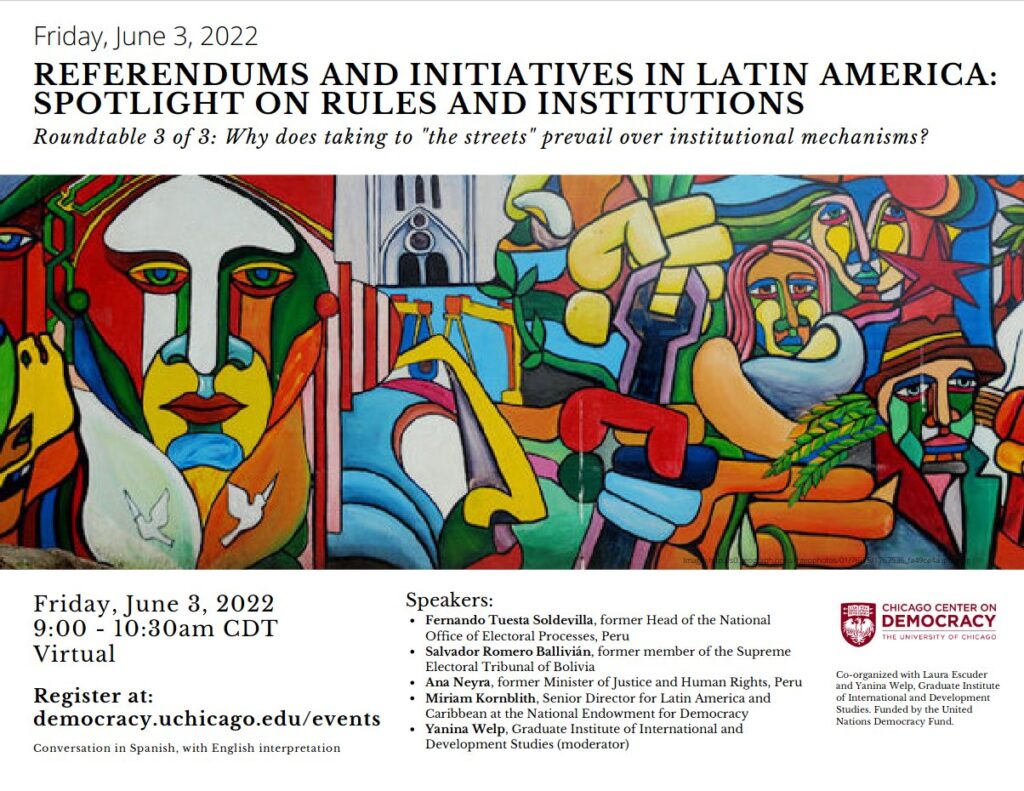
The Biden administration has made a final decision to exclude the governments of Cuba, Venezuela and Nicaragua from the Summit of the Americas, people familiar with the matter said, despite threats from Mexico’s president to skip the gathering unless all countries in the Western Hemisphere were invited, Reuters reports. U.S. officials determined that concerns about human rights and lack of democracy in the three countries, Washington’s main antagonists in Latin America, weighed too heavily against inviting them, a Washington-based source said late on Sunday.
U.S. excludes Cuba, Venezuela, Nicaragua from Americas summit https://t.co/jwUA5K7XNY
— Democracy Digest (@demdigest) June 6, 2022
In Los Angeles President Biden will say that “the region’s democratic self-determination is something we see as fundamental…regardless of countries’ ideological preferences,” according to an administration official. Yet some leftist governments in the region don’t see democracy as a dividing line, The Economist adds.
 Popular support for government and civil society is declining across the region, including for legislatures, judiciaries, political parties, security forces, religious institutions and the media, James Bosworth writes for World Politics Review. A recent Inter-American Development Bank publication (right) highlights polling that shows fewer than three in 10 people in Latin America and the Caribbean trust their government.
Popular support for government and civil society is declining across the region, including for legislatures, judiciaries, political parties, security forces, religious institutions and the media, James Bosworth writes for World Politics Review. A recent Inter-American Development Bank publication (right) highlights polling that shows fewer than three in 10 people in Latin America and the Caribbean trust their government.
Trust is the key to social cohesion, but it is lower in the region than anywhere else in the world, say the authors. Mistrust distorts democratic decision-making. It keeps citizens from demanding better public services and infrastructure, from joining with others to control corruption, and from making the collective sacrifices that leave everyone better off. The good news is that governments can increase citizen trust with clearer promises of what citizens can expect from them, public sector reforms that enable them to keep their promises, and institutional reforms that strengthen the commitments that citizens make to each other.
Over the past two decades, two of the region’s countries—Venezuela and Nicaragua—have completed the transition from being representative democracies to fully-fledged dictatorships, while a few others are barely worthy of the democratic label, adds International IDEA.
The National Endowment for Democracy’s Latin America director Miriam Kornblith addressed a University of Chicago forum (below) on street-based actions versus institutional approaches to advancing democracy.








